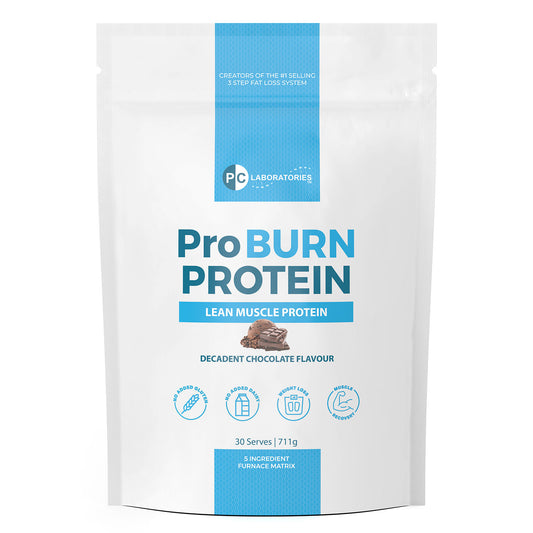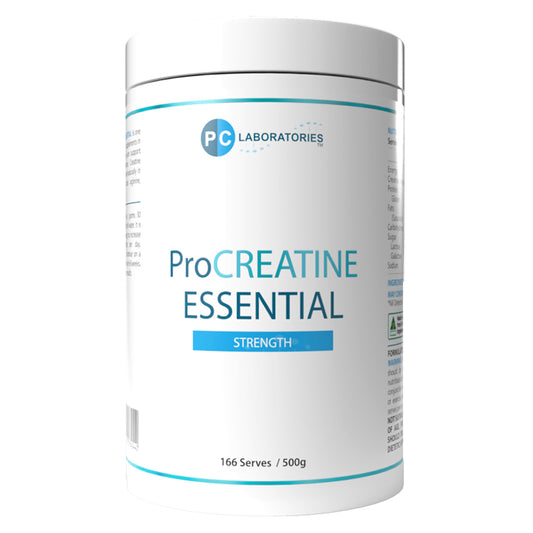Creatine is a common nutritional supplement linked to muscle building and athletic performance. You’ve probably already heard of it — it’s very popular in fitness circles on social media right now.
However, did you know that many women are now taking creatine before and during pregnancy?
It’s rumoured that supplementing your diet during pregnancy can improve the health of both mother and baby, but what does the research say? Let’s investigate together.
What is Creatine?
First things first, creatine is a compound that is found naturally in muscle cells and also in animal protein like meat, fish and dairy. It helps your body produce energy during high-intensity exercise or heavy lifting. As a result, creatine can be used to improve exercise performance, increase strength and build muscle mass.
Creatine can also help support brain function, fight neurological diseases (like Parkinson’s) and reduce fatigue.
Are There Benefits of Creatine for Mother or Baby During Pregnancy?
During pregnancy, creatine is transferred through the placenta from mother to baby, like most nutrients.
Fetal Health and Development
Studies show that creatine may be essential for energy production in certain reproductive tissues, such as:
- Sperm
- Endometrium (tissue that lines the uterus)
- Myometrium (muscle layer of the uterus)
- Placenta
There is evidence to suggest increasing fetal levels of creatine before birth helps grow and develop the baby. This is especially the case for the muscles and brain. Creatine is known to protect the brain and reduce the risk of conditions such as cerebral palsy.
When it comes to giving birth, the myometrium and placenta are both crucial. Low levels or a lack of oxygen to the baby (intrapartum asphyxia) is the third leading cause of newborn deaths worldwide. Creatine supplementation is said to miminise injury if there are complications during labour.
Maternal Health
As creatine plays a critical role in cellular energy production, supplementation can help maintain muscle health and overall energy levels during pregnancy.
In addition to reducing pregnancy-related fatigue, creatine can aid in muscle recovery and prevent muscle degradation during the later stages of pregnancy.
Is It Safe to Take Creatine Supplements During Pregnancy?
Studies indicate that 6 out of 10 pregnant women (57.2%) have below the recommended quantities of creatine for an adult female. This creates a possible risk of creatine malnutrition in pregnancy.
That being said, let’s look at the facts. There’s evidence to suggest creatine is safe in non-pregnant women, according to Dr Stacey Ellery and the team at Hudson Institute of Medical Research in Australia. If there is an excess of creatine in the body, it can be eliminated by our kidneys without any issues.
Research is ongoing regarding the safety of creatine supplementation for pregnant women, though. Through extensive animal studies, there are no side effects from taking creatine during pregnancy.
What Is the Recommended Dosage of Creatine During Pregnancy?
Dr Stacey Ellery and her team are undergoing further studies to find the optimal level of creatine during pregnancy. These will provide the evidence needed to conduct a clinical trial that will test whether creatine supplementation during pregnancy can protect mother and baby from energy depletion.
Does Creatine Affect Conception?
As we mentioned earlier, sperm uses creatine to produce energy during fertilisation. Emerging evidence shows that the endometrial layer of the uterus also uses creatine to produce energy. This happens when a fertilised egg implants to initiate pregnancy.
The storage and production of creatine by the endometrium could potentially be altered in women who are having trouble conceiving both naturally and through IVF. At the moment, further research is required to confirm this.
In the meantime, taking a daily creatine supplement like our ProCreatine may benefit both men and women who are trying to conceive.
Let’s face it, there is promising evidence to suggest that creatine may be beneficial for fetal health and maternal health during pregnancy. Even so, more research is needed to fully understand its safety and efficacy.
Pregnant women should always seek medical advice before introducing a new supplementation regimen.








